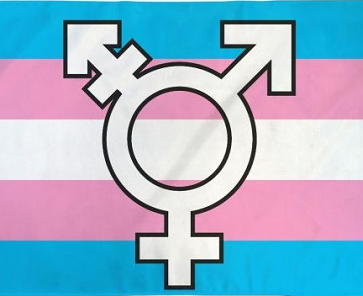Divrsity Dictionary: Transgender
27th June 2023

[DISCLAIMER: written by a cisgender woman with the intention to raise awareness and support the trans community. Please do not hesitate to reach out if anything written here is inaccurate or causes offence]
What does 'trans' mean?
- Trans is the abbreviated word to describe someone who is transgender
- Being trans means identifying and experiencing oneself as a gender different from the one assigned at birth
- Being trans is therefore a deeply personal understanding of one's gender identity, and may not align with societal expectations or the physical attributes typically associated with the assigned sex at birth
- Transgender individuals often undergo a process of self-discovery and may pursue social, medical, or legal steps to align their internal sense of self with their external appearance and gender expression
Why is it important to support the trans community?
There is no true social justice, equality or inclusivity without supporting the transgender community.
A study conducted by Stonewall found that 51% of transgender people surveyed had hidden their identity at work for fear of discrimination. Furthermore, 12% had been physically attacked at work (!!!) due to their gender identity.
Also understanding and addressing the impact of intersectionality (see blog article here) is crucial, as it recognises that gender identity intersects with other aspects of a person's identity; e.g. race/ethnicity, socioeconomic status, disability etc.
For example, transgender people of colour often face compounded discrimination due to both racism and transphobia. Additionally, factors such as access to healthcare, legal protections, and social support may vary depending on one's intersecting identities.
How to support the trans community? Just remember “RESPECT” ( find out what it means to me...):
Respect, recognise & affirm a person's self-identified gender; use their preferred pronouns and chosen name. Refrain from making assumptions or questioning someone's gender identity
Educate yourself about various transgender experiences, relevant terminology and the challenges faced by transgender individuals
Speak out against transphobic language & ‘jokes’ - staying silent doesn’t help. Engage in conversations that challenge stereotypes / misconceptions and actively work to counteract bullying, harassment and discrimination against transgender individuals.
Provide support (emotional and/or resources) and foster inclusive environments / policies & practices eg gender-neutral toilets, dress codes and equal access to activities and facilities - this includes schools, as well as workplaces and community settings etc.
Encourage healthcare providers and institutions to adopt inclusive policies and practices that support transgender-specific healthcare needs: access to hormone replacement therapy (HRT), gender-affirming surgeries, mental health support etc.
The National LGBTQ Task Force found that 41% of transgender people have attempted suicide at some point in their lives, compared to 4.6% of the overall U.S. population and The Trans Mental Health Study, carried out by the Scottish Transgender Alliance, discovered that 34% of transgender people in the UK had experienced a negative reaction from healthcare staff because of their gender identity. Additionally, 16% reported that they had avoided seeking healthcare altogether due to fear of discrimination.
Champion legal protections for transgender rights such as laws that prohibit discrimination based on gender identity in employment, housing, healthcare, and public accommodations. Advocate for the inclusion of gender identity in anti-discrimination policies and actively oppose any attempts to roll back existing protections
The NHS Gender Identity Services have waiting times of up to 3 years for initial appointments and further delays for subsequent treatments.
Transgender amplification! Share and promote the stories, achievements and perspectives of transgender individuals. Support transgender artists, activists and community leaders by attending events, purchasing their work and/or sharing their content. By amplifying their voices, you contribute to the visibility and empowerment of the transgender community.
Remember that supporting the trans community is an ongoing process that requires empathy, active engagement and a commitment to de-stigmatisation. By advocating for transgender rights, acceptance, and equality, we can work toward a society that values and affirms the dignity and well-being of all individuals, regardless of their gender identity.
- Rochana Jackson
How Divrsity can help
The Divrsity tool helps organisations (anonymously) understand the experiences of their trans employees, and whether processes/policies are truly inclusive & equitable or not. By leveraging the data-driven insights gleaned from a Divrsity survey, an organisation can then make changes that meaningfully improve the employee experience.
Through good use of data, we can all contribute to driving positive change!
One of the reasons we built the Divrsity platform, was in-reaction to the one-dimensional way in which many employers look at Diversity: often focusing on Gender and/or Race, while ignoring important dimnsions such as Neurodiversity and/or Social Mobility. Read more about how Lenses help find opportunities to address Inclusion, Bias and Equity across all dimensions, or hit the button below to try it for yourself.
More Blog Articles
Learn why we created Divrsity
Understand how Lenses help you create an inclusive company
Divrsity Dictionary: Intersectionality
Divrsity Dictionary: Ableism